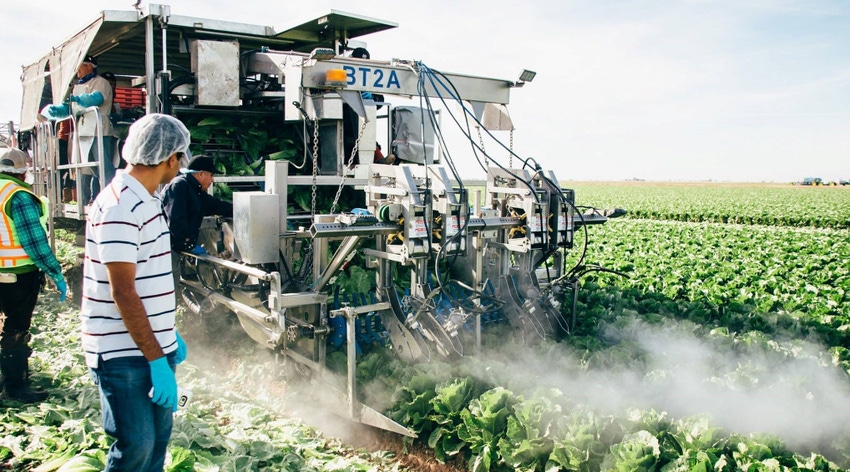
[This is the first in a three-part series on efforts to recruit and train the next generation of agricultural workers amid a technology revolution.]
Liron Brish notices a striking difference when he attends two types of industry conferences – those for agronomists, and those for technology startups.
Brish is the founder and chief executive officer of Farm Dog, a California-based firm that provides an in-field software platform for pest and disease management. The business was purchased by Deveron a month ago, and he remains as the company's vice president of product and sustainability.
“There’s an ag world and a tech world,” Brish said during the recent Salinas Valley Ag-Tech Summit. “You go to fancy tech conferences and there are a bunch of startups patting themselves on the back, but there are no farmers around, or there are a few who tend to be in the same areas and they tell us they’re doing great.
“When you go to agronomist conferences, there are a lot of incredibly smart Ph.D.’s and master’s students, but you look around and there’s no tech,” he said. “Everyone’s presenting on poster board. And there’s minimal interaction between these two.”
As a technology revolution is escalating throughout agriculture, companies and educational institutions alike are scrambling to find or develop next-generation workers and professionals who feel as comfortable in a fruit orchard or lettuce field as they do in front of a computer.
Farms adopting technology such as robotic harvesters or Farm Dog’s satellite imagery and other programs are creating apprenticeships, scholarships and partnerships with local colleges and universities to train the next crop of students in both skillsets.
In the past several years, Salinas, Calif.-based Taylor Farms has made a $1.1 million gift to nearby Hartnell College for a new STEM learning center and led a $9.3 million fundraising campaign to build an agricultural center for youth in Rancho Cielo.
The major vegetable producer has noticed its workforce getting older while recruitment of younger workers has been difficult, said Ted Taylor, president of the Taylor Farms-owned Mission Ranches and Seco Packing in King City, Calif.
“We can talk all we want, but we’ve got to act,” Taylor said during the ag-tech webinar. “We’ve got to see progress.”
Training existing workers
While they wait for new generations to emerge, companies are training existing employees – and encountering a little trepidation among the crew, said Mariana Valdez, soil science manager for Bakersfield, Calif.-based Ag-Wise Enterprises, Inc., an irrigation service.
Ag-Wise seeks to reassure farms’ irrigation workers that the system “will work not to replace them but to make their jobs easier,” Valdez said. Still, some workers may not be able to read or to use technology at a level required for accountability to government or consumers, she told ag-tech webinar viewers.
“In our case we do have people who have those abilities, but not everyone does,” she said. “Not everyone feels comfortable with a phone programming irrigation, and not everyone has the ability to teach coworkers.”
FarmWise, a California-based company that contracts with growers for the use of its robotic weeder, designed its own training program to evolve skills that the company defines, CEO Sebastien Boyer said during the webinar.
“It’s very hard to find the proper workforce,” Boyer said. “It’s going to evolve, but there are many differences between the workforce we want and the workforce that’s currently available in the industry.”
For Taylor, the dilemma shows the value of companies partnering with academia to train new and existing workers. He noted that in a recent poll of area schoolchildren, about half said their parents had careers in agriculture, but only 3% said they wanted to work in ag. He said the industry needs to work to become more attractive to new workers.
“No one company can do this themselves,” he said.
[Tomorrow: How colleges and universities are helping current and future workers navigate the ag-tech revolution.]
About the Author(s)
You May Also Like






